Click on images to enlarge
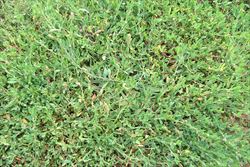
dense infestation (Photo: Sheldon Navie)

infestation (Photo: Trevor James)
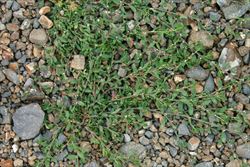
habit (Photo: Trevor James)
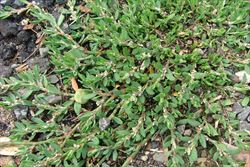
habit (Photo: Sheldon Navie)
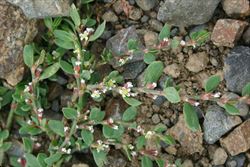
leaves and flowers (Photo: Trevor James)

stems and leaf undersides (Photo: Sheldon Navie)
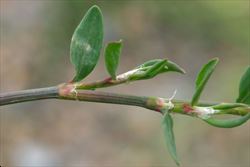
close-up of stems and leaves (Photo: Trevor James)
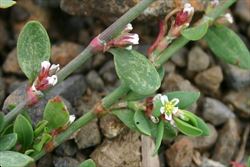
tiny flowers in the leaf forks (Photo: Trevor James)
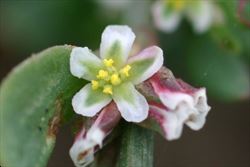
close-up of flowers (Photo: Trevor James)
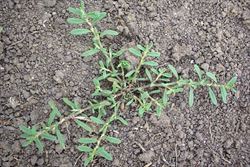
small knotweed (Polygonum plebeium), a similar native plant with narrower leaves (Photo: Sheldon Navie)
Scientific Name
Polygonum arenastrum Boreau
Synonyms
Polygonum aequale Lindm.Polygonum aviculare L. (misapplied)Polygonum calcatum Lindm.Polygonum plebeium R. Br. (misapplied)
Family
Polygonaceae
Common Names
bird grass, box knotweed, common knotweed, door weed, doorweed, door-yard knotweed, dooryard knotweed, Engelmann's knotweed, equal-leaved knotgrass, hogweed, knotweed, mat grass, matweed, oval-leaf knotweed, ovalleaf knotweed, prairie knotweed, prostrate knotweed, sand wireweed, small leaved wireweed, small-leaved knotgrass, small-leaved knotweed, stone grass, wiregrass, wireweed
Origin
Native to Europe, western Asia and northern Asia (i.e. northern China, Japan, Korea, Mongolia and Russia).
Naturalised Distribution
Widely naturalised in southern Australia (i.e. in New South Wales, the ACT, Victoria, Tasmania, south-eastern and eastern South Australia and south-western Western Australia). Also recorded from the northern parts of Western Australia.
Notes
Sand wireweed (Polygonum arenastrum) is regarded as an environmental weed in Victoria.

